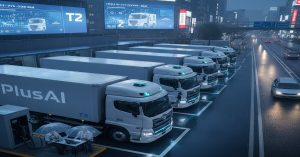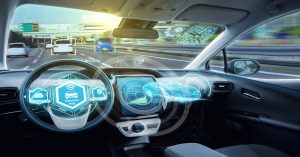In a groundbreaking development, the BMW Group and Toyota Motor Corporation have announced an ambitious collaboration to propel fuel cell powertrain technology to new heights. With both automotive giants committed to advancing the hydrogen economy, this partnership aims to bring the next generation of fuel cell electric vehicles (FCEVs) to roads globally. The extended collaboration between BMW and Toyota underscores their shared vision of a zero-emission future and signifies an exciting step forward in sustainable mobility.
Pioneering the Hydrogen Future
Hydrogen fuel cell technology has long been touted as a crucial solution to achieve zero-emission mobility. Unlike battery electric vehicles (BEVs), which rely on electricity stored in batteries, FCEVs generate electricity through a chemical reaction between hydrogen and oxygen, with water vapor being the only emission. This makes hydrogen-powered vehicles a highly efficient and eco-friendly alternative, especially in terms of long-range driving and quick refueling.
Both BMW and Toyota have been pioneers in developing hydrogen-powered vehicles, and their partnership represents a mutual desire to accelerate the commercialization of this innovative technology. As a result, the two companies have extended their current collaboration, which dates back nearly a decade, to co-develop the core fuel cell technology that will be used in next-generation passenger and commercial vehicles.
The new third-generation fuel cells developed through this partnership are expected to offer significant advancements in efficiency, performance, and durability. These innovations will enable FCEVs to cater to a broader range of consumers, making hydrogen-powered vehicles a viable option in the automotive industry.
Synergy Between Two Powerhouses
At the heart of this partnership is a joint development of the powertrain system for passenger vehicles, utilizing advanced fuel cell technology. BMW and Toyota plan to create synergies that will benefit both companies and their respective markets. While BMW will integrate the fuel cell system into its existing portfolio, Toyota will continue to refine its hydrogen technologies, pushing the boundaries of what FCEVs can achieve.
One of the key highlights of this collaboration is that while both automakers will develop fuel cell systems together, they will ensure their vehicles maintain distinct brand identities. As a result, customers will be able to choose from individual FCEV models under each brand, each offering unique features and embodying the brand’s core values.
BMW plans to launch its first-ever series production fuel cell electric vehicle by 2028, marking a significant milestone in the brand’s history. The hydrogen-powered variant will be integrated into one of BMW’s existing models, offering customers a new emission-free alternative. This will not only expand the brand’s green vehicle lineup but also demonstrate the versatility of fuel cell technology within BMW’s renowned lineup of premium cars.
A New Chapter in Automotive History
The leadership at both companies expressed their excitement and optimism about the collaboration and the future of hydrogen-powered vehicles. Oliver Zipse, Chairman of the Board of Management of BMW AG, described this project as a “milestone in automotive history” and highlighted the importance of technological progress in shaping the future of mobility. “Powered by hydrogen and driven by the spirit of our cooperation, this endeavor will underscore how technological innovation is revolutionizing the automotive industry,” Zipse said. He further emphasized the significance of fuel cell technology in meeting growing consumer demand for sustainable transportation solutions.
Koji Sato, President and Member of the Board of Management at Toyota Motor Corporation, echoed Zipse’s sentiments, praising the collaboration as a testament to the shared values of both companies. Sato highlighted that BMW and Toyota have a long-standing partnership, underpinned by their belief in “technology openness” and a “multi-pathway approach to carbon neutrality.”
Sato also emphasized Toyota’s vision of a hydrogen society where hydrogen energy plays a pivotal role in supporting global sustainability. The joint efforts between BMW, Toyota, and other industry partners aim to accelerate the development of hydrogen infrastructure, ensuring the widespread adoption of fuel cell technology in the years to come.
Expanding the Range of FCEV Options
The result of this joint effort between BMW and Toyota will be felt not only in the passenger vehicle market but also in commercial vehicle applications. By leveraging the strengths of both companies, the collaboration will produce FCEVs with advanced powertrain systems that can be adapted for various uses, from everyday passenger cars to heavy-duty trucks.
For consumers, this means an expanded range of FCEV options, with vehicles that deliver the performance, reliability, and distinctive characteristics of both brands. Whether it’s a luxury hydrogen-powered sedan from BMW or a high-performance hydrogen SUV from Toyota, customers will have more choices than ever when it comes to eco-friendly vehicles.
A Commitment to the Hydrogen Economy
This partnership between BMW and Toyota represents a crucial step towards realizing the potential of the hydrogen economy. As the automotive industry continues to evolve, hydrogen fuel cell technology will play an essential role in reducing global carbon emissions and creating a more sustainable future for mobility.
In addition to their efforts in vehicle development, BMW and Toyota are committed to expanding the necessary infrastructure to support hydrogen-powered vehicles. This includes increasing the number of hydrogen refueling stations worldwide and ensuring the availability of affordable, green hydrogen.
As we look towards a future shaped by technological innovation and environmental responsibility, the collaboration between BMW and Toyota is poised to accelerate the transition to a hydrogen-based society, unlocking new possibilities for sustainable transportation.
Conclusion
The announcement of this partnership marks an exciting chapter in the automotive world. With the combined efforts of BMW and Toyota, the dream of a hydrogen-powered future is no longer a distant vision but an imminent reality. As fuel cell electric vehicles become more accessible to consumers, we are one step closer to a cleaner, greener, and more sustainable future for transportation.
This collaboration not only strengthens the position of both companies in the automotive market but also sets a new standard for how innovation can drive positive change in the fight against climate change.







